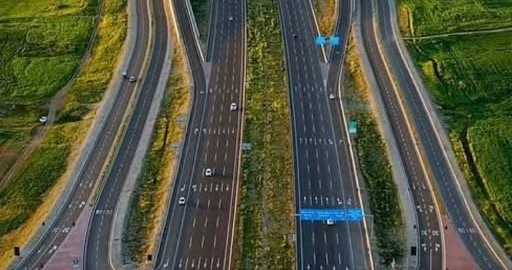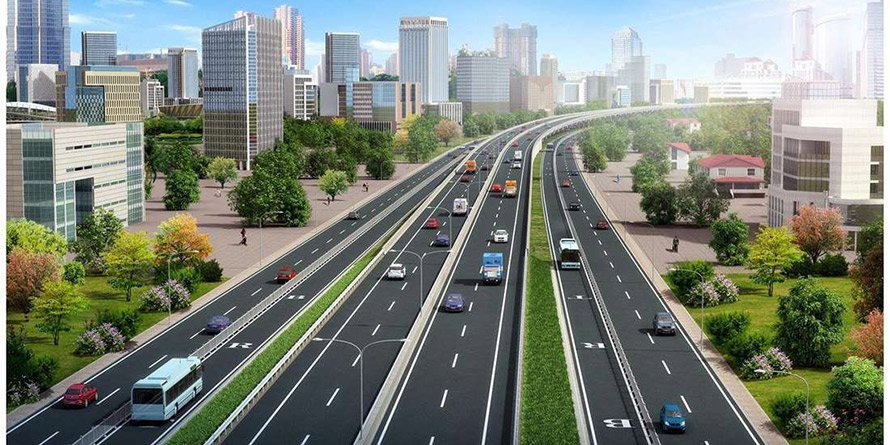Updated November 26, 2025:
The expansion of the Nairobi-Nakuru dual-carriageway project will be split into two sections. The main reasons for this is to accommodate the two consortiums including Chinese firms and the National Social Security Fund (NSSF). This is after both bidders cited a strict $1 billion investment cap on Chinese state-owned enterprises. The cap requires a lengthy internal review before approval. KeNHA notes the restructuring follows failed negotiations on the original full corridor option.
Moreover, both China Road and Bridge Corporation (CRBC)–NSSF and Shandong Hi-Speed Road and Bridge International (SDRBI) said they could not proceed with the entire scope under current Chinese SOE outbound-investment rules. Under the new structure approved by the PPP committee, CRBC-NSSF will take the first section. This covers the Nairobi-Naivasha-Gilgil segment and the Nairobi-Maai Mahiu-Naivasha road. Moreover, it covers about 139 kilometers of the 233 kilometers to be constructed. On the other hand, SDRBI will undertake the 94 km Gilgil-Mau summit section. The road project compliments the planned Usahihi Expressway that is expected to be Africa’s largest toll road project.
The Main Reason for Nairobi-Nakuru Dual-Carriageway Split

The Nairobi-Nakuru dual-carriageway split is based on alternative split-corridor feasibility proposals. They were submitted by the firms earlier this year after signaling delays for investments exceeding $1 billion. Furthermore, KeNHA confirmed that the full-corridor negotiations collapsed after CRBC told authorities that adjustments to accommodate the investment cap would amount to “material changes” barred under Section 57(3) of the PPP Act. SDRBI also declined to take up the full scope, triggering evaluation of the split-corridor option now adopted by the PPP Committee.
Motorists are expected to pay Sh8 per kilometer once the dual-carriageway upgrade is complete. Furthermore, it is a tariff KeNHA says is more affordable than the Sh10 proposed by SDRBI in its previous full-corridor plan. The 175km Nairobi–Nakuru–Mau Summit stretch is projected to cost about Sh90 billion and is scheduled for completion by June 2027. Treasury Cabinet Secretary John Mbadi earlier said the road will significantly improve mobility between Nairobi and western Kenya. Furthermore, it will significantly cut travel time in one of the country’s busiest trade corridors.
22 August, 2025:
Kenya’s €1.3 Billion Nairobi-Nakuru Dual-Carriageway Deal is expected to be terminated from a consortium led by France’ Vinci SA. The project will go to a Chinese contractor instead, government officials and source said. The deal entails turning 140 km[87miles] of a single lane road into a multilane highway. This highway will join the capital Nairobi the Rift Valley city of Nakuru. Also, the deal was signed in Paris in 2020 during a visit by then -president Uhuru Kenyatta.
Despite it taking shape, the project does not come without its challenges. The Motorists Association of Kenya has provided a strong opposition aiming to stop implementation of the Nairobi-Nakuru highway expansion. One of the reasons for this is that once the project is complete, motorists will have to pay toll fees to use the highway. Motorists feel that this would be double taxation on their end as they are alread paying the Road Maintenance Levy Fund, which has risen to sh18 in the past 24 months.
Nairobi-Nakuru Dual-Carriageway Factsheet
Cost: €1.3 billion (approximately Ksh 190 billion).
Scope: Expansion of a 140-kilometer single-lane road into a multi-lane highway.
Location: Linking Nairobi, the capital city, to Nakuru, a significant city in the Rift Valley.
Contractor (Initial): A consortium led by Vinci Highways, which included Vinci Concessions and French private equity firm Meridiam SAS.
Agreement signing: The deal was signed in Paris in 2020 during a state visit by the then-President Uhuru Kenyatta.
Public-Private Partnership (PPP): The project was structured as a PPP, with the consortium responsible for design, funding, and construction, and expected to recover their investment through toll collections over a concession period of 26 years (as per earlier reports on a similar project).
Reasons for termination:
- Unfavorable contract terms: The Kenya National Highways Authority (KeNHA) sought a restructuring of the contract terms. They deemed the contract unfavorable to the government.
- Financial risk: KeNHA stated that the original agreement placed the financial risk of low traffic volumes squarely on the Kenyan government.
- Unbankablre structuring proposal: The proposed restructuring of the contract was considered “unbankable,” leading to a stalemate between KeNHA and the French-led consortium.
Compensation to French consortium: Kenya is expected to compensate the French firms for the termination of the contract.
Also read: Kenya Secures $215 Million El Wak-Rhamu Road Construction Funding
Reason for Terminating the Contract
Kenya’s decision to terminate the contract comes after government authorities had sought to review the terms of the agreement, which the National Highways Authorities [KeNHA] said put the risks from insufficient traffic demand onto the government.
‘’KeNHA requested a restricting of the contract … but the proposal was considered unbankable thus creating a stalemate,’’ the agency to the Reuters.
This led to KeNHA issuing a notice of termination to finalise the public – private partnership contract, it said.
Highway construction for the project had not yet begun.
French private equity group Meridiam SAS and Vinci Concessions- also a part of the French infrastructure group – are members of the consortium that is led by Vinci Highways.
Vinci refused to comment on the contract ‘s termination. Meridiam refused to immediately respond to a request for comment.
Meanwhile, two sources with direct knowledge of the government’s plan said the contract would be going to a Chinese organisation, which has yet not been disclosed.
The sources asked not to be named as they were not authorised to speak to the media.
Kenya’s Finance Minister John Mbadi led a team of officials to Beijing this month where they met senior officials. Local media have reported that President William Ruto will be heading to China for a state visit later this month.
Also read: 193-Kilometer Kenya-South Sudan Road Construction Funding Secured

Leave a Reply